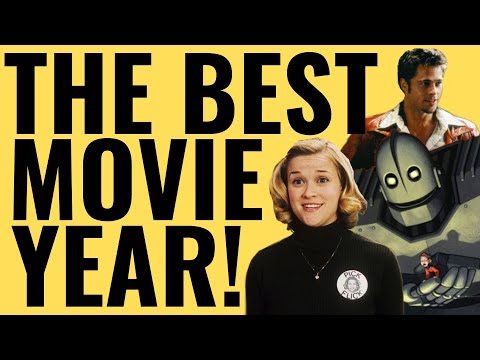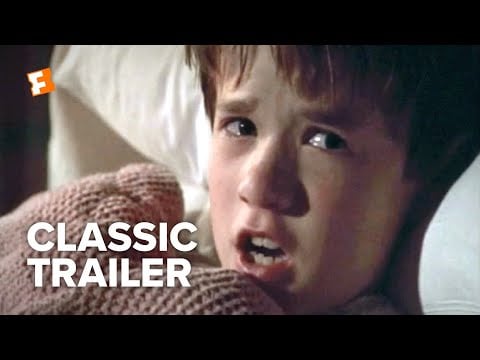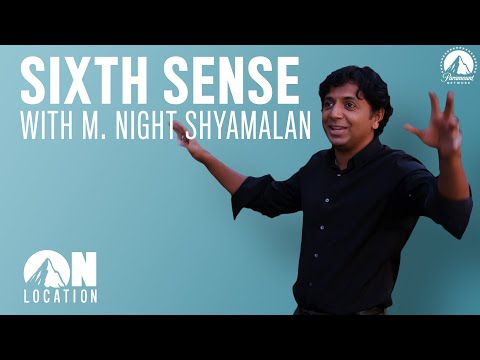M. Night Shyamalan’s “The Sixth Sense” (1999) arrived with such a quiet, understated amount of hype at summer’s end that no one expected it to be the durable classic that it became.
I have an embarrassing story about “The Sixth Sense” that I’ve shared many times – I was at an early screening of the film, a test screening taking place not long before the film’s wide release at the tail end of the busy summer of 1999.

Once I left the theater and found myself in the lobby, I was approached by a lady holding a clipboard, who asked me what I thought of the film. I told her it showcased Bruce Willis’ best performance, that the film was really scary but strangely touching at the same time and was one of the best movies I’ve seen all year.
The lady thanked me and smiled as she quickly jotted down everything I said. While walking out to my car, my friend who accompanied me asked if I thought the movie was going to be a hit at the box office. My response?
No way. Not a chance.
I explained to her that the movie was too slow, too talky and too disturbing to grab a mainstream audience. It had Willis playing a similar guardian role that he just played a couple of months earlier in “Mercury Rising” and he never carried a gun in the Shyamalan film.
I also said that the then-current box office domination of “The Blair Witch Project” all but guaranteed that “The Sixth Sense” had no commercial chance, since there was no room for another breakout horror movie coming out at summer’s end.
I said all of that.
A week or so later, the movie opened in the number one spot…where it remained until October. By the end of the year, it became the top-grossing thriller of all time. I’ve been wrong about a film’s commercials chances before, but rarely like this.
I didn’t trust that an audience would be patient enough for the film’s careful pacing, unsettling reveals, subtle/internal dramatic power and clever puzzle of a narrative. I was happy to be wrong about “The Sixth Sense” and find that not only did the majority of filmgoers not blab the big reveal to their friends but shared an appreciation for what Shyamalan achieved, which was deeply felt and wide reaching.

For the uninitiated, here’s a brief, spoiler-free plot description: From the opening shot, it’s paced like a film from the 1970s, with the first visual a light coming into illumination.
We meet Dr. Malcolm Crowe (Willis) and his wife Anna (Olivia Williams), whose celebratory mood is broken by the unannounced arrival of a prior, truly haunted former patient of Crowe’s. Following that nightmarish encounter, we see that Dr. Crowe, sometime later, is now struggling to connect with a young patient named Cole (Haley Joel Osment).
Some moments are presented via reflective surfaces, suggesting that what is seen can be interpreted in more than one way.
Willis is wonderful in this, giving an understated, focused and deeply moving turn, and he’s matched by Osment who, frankly, gives one of the best performances I’ve ever seen from a young actor. There’s a soulful, genuine quality to Cole that Osment connects to, as well as an inner anguish that is, movingly, about his inability to fully communicate with his mother.
In a single, chilling scene, Donnie Wahlberg gives an amazing performance (it’s odd that Wahlberg, as well as Willis, wasn’t Oscar-nominated for their acting). Toni Collette, who did receive an Oscar nomination for her performance as Cole’s mother, proves here and elsewhere that she can play anyone in any genre of film.

Cinematographer Tak Fujimoto’s shots, whether hand-held or formerly captured, are perfect compositions. The way in which the color red is presented as a thematic warning in key moments is as admirable as the amount of restraint given throughout this sensational story.
Note how the camera either pulls in or away to convey the state of the relationship between Cole and Malcolm. My college Film Theory professor used to instruct us to watch “Manhattan” (1979) as an example of a movie with perfect cinematography.
Fujimoto’s work here is another major example.
Once we start seeing what Cole sees, the movie turns on us. The encounters Cole has with the supernatural are terrifying, reminding me more of “Repulsion” (1965) than any contemporary horror film at the time. Shyamalan connects with how unsafe we can feel in our home and explores parental fears of being unable to protect our kids.
FAST FACT: Shyamalan, then a mostly unknown scribe, put his foot down when pitching “The Sixth Sense” around Hollywood. He had to be the director, and the project must generate a bid north of $1 million.
The story utilizes media for plot points, such as Malcolm’s wedding video, the awful commercial starring Cole’s smarmy classmate and the nightmare-inducing, telltale surveillance video that reveals a horrible secret during the film’s climax.
“The Sixth Sense” believes in ghosts, that they are an extension of our anger and frustration at an unresolved life. Being a lifelong horror movie fan, it’s hard to think of another film that can give me the creeps one minute, and then move me to tears the next.
The subplot of Collette as Cole’s mother, who is struggling to connect with her son, could have dragged this down but instead, it’s such a strong anchor to the entire film, largely because Collette is so heartbreaking here.
Haley Joel Osment reveals sweet tradition Bruce Willis kept up after Sixth Sense https://t.co/25al29sblV
— The Independent (@Independent) October 2, 2024
Shyamalan, in addition to the confidence and control he exudes as a director, has also given us a dialog-heavy, character-driven, compassionate and disturbing story. Arriving at the tail end of the busy summer of ’99 (with such mega-hits as “The Phantom Menace” and “Austin Powers: The Spy Who Shagged Me” in pop culture dominance), the last thing anyone could expect was the true arrival of Shyamalan, establishing himself as an auteur at age 29.
Shyamalan has made great films subsequently and famously rebounded from the ones that didn’t work; it’s easy to see why cinephiles keep going back to this one, as it’s a genre masterclass.
So many sequences here play like perfect little movies, like Cole and Malcom arriving unannounced at a funeral and the scene where Cole finally tells is mother the truth she doesn’t want to hear.
The legendary plot twist is so good because the movie plays fair, and the punchline is cleverly constructed. There are quick flashbacks provided to illustrate how Shyamalan fooled us with his “Twilight Zone”-worthy climax.
Yet, “The Sixth Sense” is so much more than its legendary climax.
If you haven’t seen “The Sixth Sense” in years and only remember the twist – or worse, you only know the twist but never saw the movie – it’s worth reporting that this isn’t some quaint classic where the final reveal is the only strength.
In fact, had the movie simply ended with Cole’s theater performance and concluded before the big whammy ahead of it, this would still be one of the best films of 1999.
The post How ‘Sixth Sense’ Turned Conventional Wisdom on Its Head appeared first on Hollywood in Toto.
from Movies - Hollywood in Toto https://ift.tt/ip5wNR1

0 Comments: